
Cao Bang Geopark: Achieving UNESCO recognition
Latest
| TIN LIÊN QUAN | |
| Vietnam’s UNESCO-recognised intangible cultural heritages | |
| Festival celebrates UNESCO recognition of Bai Choi singing | |
The 204th session of UNESCO’s Executive Board was held in Paris, France from April 4 - April 17 with the participation of the Vietnamese delegation led by Deputy Foreign Minister Le Hoai Trung. During the event, on April 12, UNESCO reviewed and officially approved new Geoparks, including Non Nuoc Cao Bang Geopark.
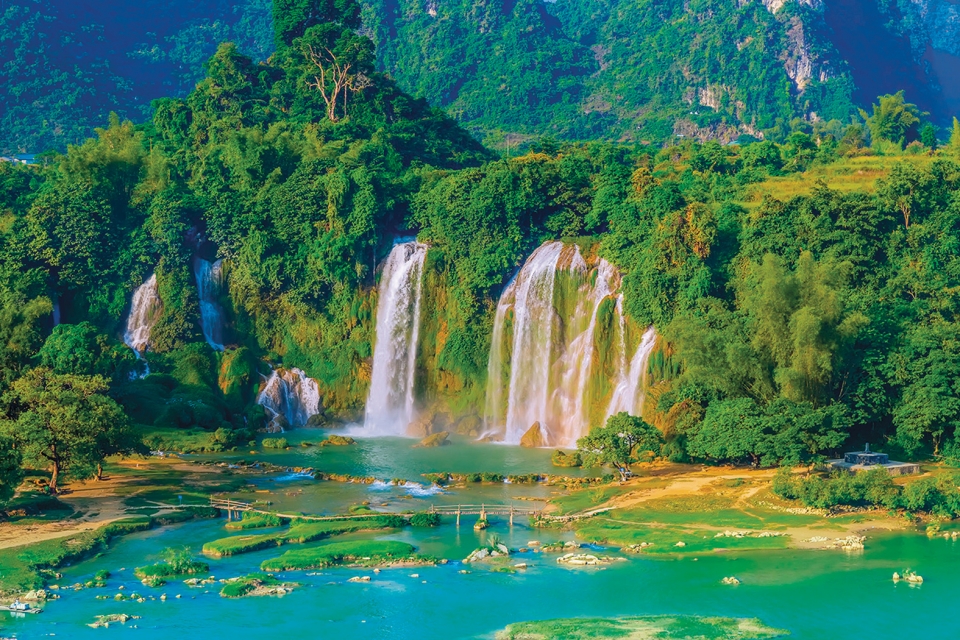 |
| Ban Gioc Waterfall, Cao Bang. |
The UNESCO Global Geopark is an important title in the field of natural science. In order to achieve this title, the Geopark must ensure that it is a geographic site that holds important geological heritage on a global scale. The heritage site must enhance knowledge of Earth’s geological changes, as well as the risks of volcanoes, earthquakes and tsunamis to help establish mitigation measures. A UNESCO Global Geopark also requires elements related to climate change, helping the global community pay more attention to environmental protection and the rational use of natural resources.
Taking the initiative
Cao Bang is known as the land of caves and the environment is famously massive, diverse, beautiful and very well preserved.
Since November 2015, the Ministry of Foreign Affairs and UNESCO National Committee have worked with Cao Bang People's Committee on a plan to develop the provincial geological park and submit it to the UNESCO Global Network of National Geoparks.
Looking at its own potential, Cao Bang drew up plans to achieve the UNESCO title with the aim of creating great opportunities to protect the environment, as well as enhancing the area’s own socio-economic development, with a focus on the tourism sector, including ecotourism, cultural tourism and community tourism.
Embarking on the plan, Cao Bang wanted to build a future Global Geopark with an area of over 3,000 square kilometres, including 9 districts (Ha Quang, Hoa An, Nguyen Binh, Tra Linh, Quang Uyen, Trung Khanh, Ha Lang Phuc Hoa and Thach An) with 130 sites of unique geological heritage of international value. This included one national conservation area, five species habitat conservation areas, five landscape protection areas and two biodiversity corridors with many historical relics, as well as tangible and intangible cultural heritages.
The Vietnam Institute of Geosciences and Mineral Resources, under the Ministry of Natural Resources and Environment, conducted a field survey to study potential areas for a UNESCO Global Geopark. Based on the results of two surveys, Cao Bang was invited by the institute to consult and support the construction and development of the Geopark. In addition, Cao Bang also invited UNESCO experts to help develop the resumé for Cao Bang Geopark.
In November 2016, Cao Bang Geopark was submitted to UNESCO for approval by the Vietnamese UNESCO National Committee.
In July 2017, UNESCO sent experts to Vietnam for on-the-spot verification of the Cao Bang Geopark. After thoroughly surveying the area, the experts concluded that Non Nuoc Cao Bang Geopark has great potential in terms of heritage, geography and culture, and the site met all the criteria for a UNESCO Global Geopark.
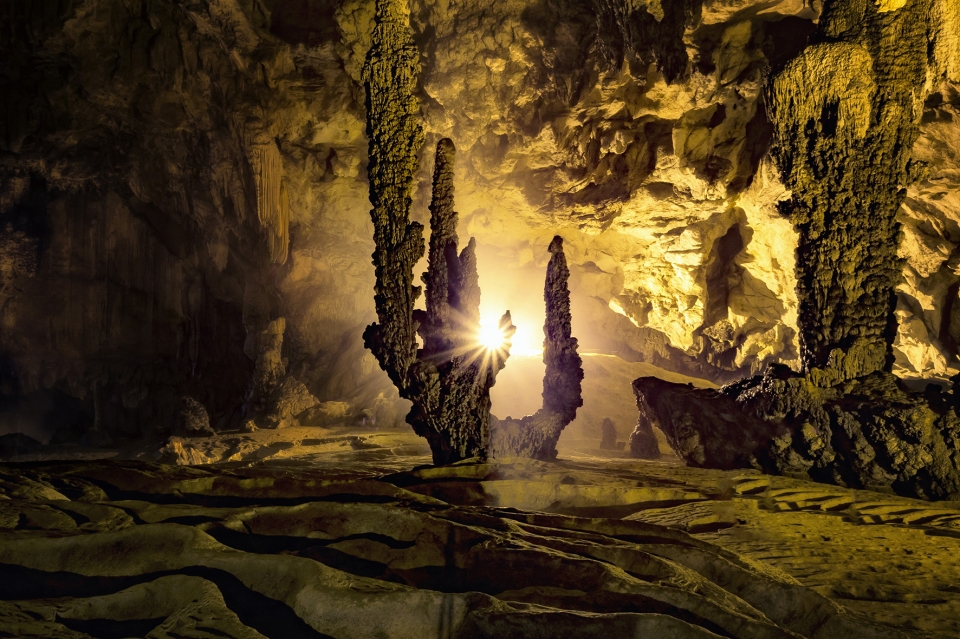 |
| Nguom Ngao Cave |
In September 2017, the UNESCO Global Geoparks Council held a meeting in Guizhou, China and announced that Cao Bang Non Nuoc Geopark had met all the requirements to become an UNESCO Global Geopark and recommended that the UNESCO Executive Board approve the title of UNESCO Global Geopark to Cao Bang.
Now, the last step has been taken. The 204th Executive Council meeting, held in Paris, is an important moment honouring another Vietnamese site on the global heritage map
A new global destination
According to researchers, Non Nuoc Cao Bang Geopark has completely different characteristics to other sites. The karst process (a topography formed from the dissolution of soluble rocks) on the Dong Van Plateau is still at a “young age”, while Cao Bang has a more “mature” and “old” karst. Extensive karst has produced a vast area of fertile soil, and relatively mild climate, with few natural disasters, droughts, floods and landslides. Also, Cao Bang Geopark is home to a variety of marvelous geological sites such as the Pillow Basalt along the Cao Bang-Tien Yen Deep-seated Fault, Hang Doi Cave, Thang Hen Lake, the Geomorphological-tectonic geosite in the eastern part of Cao Bang, among others.
It can be seen that Cao Bang Geopark is a rare piece of land, where tourists from all over the world can come and learn about millions of years of the Earth’s history through the remnants here.
Cao Bang is also a land of various cultures, with the crossover of 8 ethnic groups (Tay, Nung, Mong, Dao, San Chi, Lo Lo, Kinh and Hoa), each of which has its own unique cultural heritages. Besides, there are a lot of tangible and intangible cultural heritages, especially historical relics, including the Pac Bo National Monument – where President Ho Chi Minh led the revolutionary movement in 1941, after over 30 years abroad; Tran Hung Dao forest relic site – where in 1940, General Vo Nguyen Giap formed the Armed Propaganda Unit for National Liberation, predecessor of the People's Army of Vietnam today.
The unique features of nature blending with a diverse cultural environment and the active initiative taken by the government are valuable resources to help the area exploit its potential in tourism development.
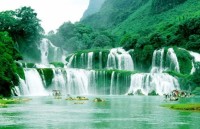 | Vietnam’s Cao Bang Park declared UNESCO Global Geopark Vietnam’s Non Nuoc Cao Bang Geopark in the northern province of Cao Bang has been recently declared a new member of the UNESCO Global Network ... |
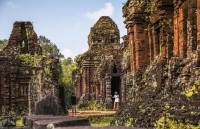 | My Son Sanskrit texts to be translated into Vietnamese, English The Sanskrit texts inscribed on the relics at My Son Sanctuary, a UNESCO world heritage site in central Vietnam, will be translated into Vietnamese and ... |
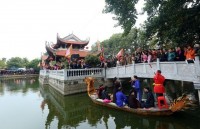 | Love duet singing festival kicks off in Bac Ninh Thousands of local people and visitors have flocked to Tien Du district in the northern province of Bac Ninh to attend the Lim festival, which ... |

















